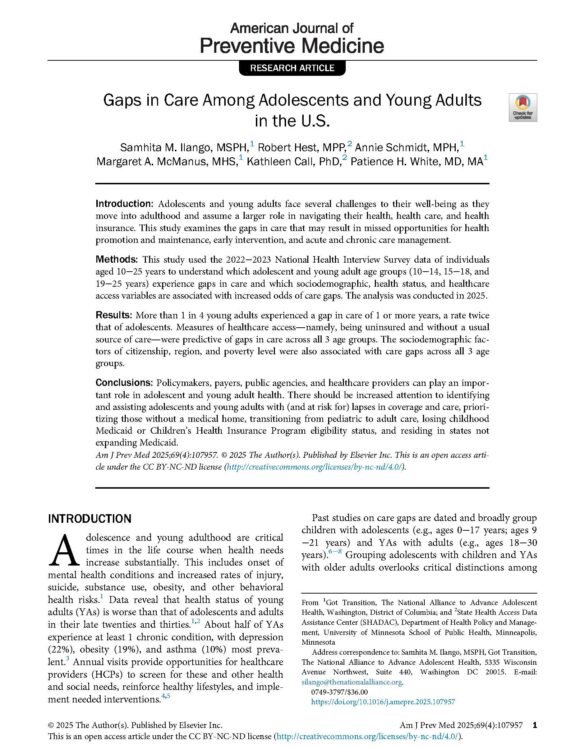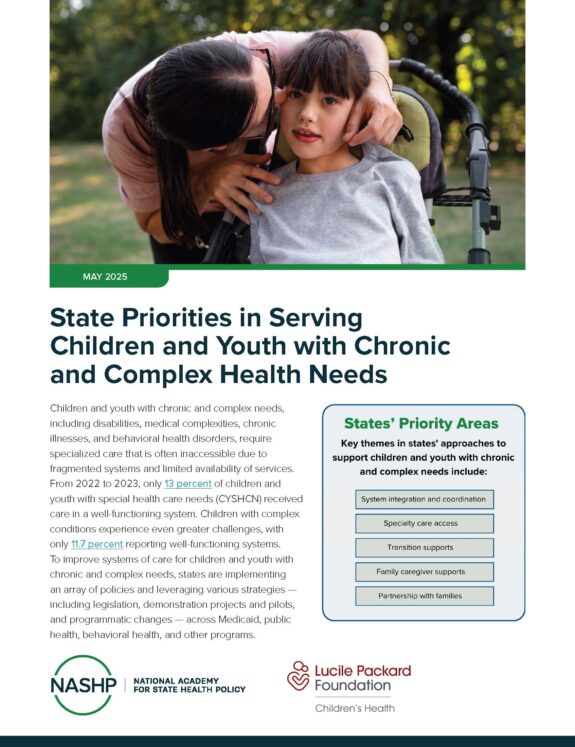Transition to Adult Care: What’s Age Got to Do with It?
As children with chronic medical problems reach adolescence, pediatric health care providers expect their maturing patients to transition to adult health care settings. However, many adult health care providers aren’t prepared to take responsibility for adult patients with chronic conditions traditionally considered pediatric. In an article in the May 2015 online edition of Pediatrics, Edward L. Schor, MD, offers an alternative approach to collaboration among health care professionals, with the aim of making the best use of their individual expertise while meeting the needs of their patients at all ages.
The article recognizes that the shift from adolescence to adulthood has largely been influenced by social norms in the past—reaching age 21 or being able to provide for one’s own basic needs. In health care, the transition from pediatric to adult care can be initiated by patients and practitioners for a variety of reasons. Young adults may prefer to be seen by a physician whose waiting room is not filled with infants and children; transition also can be seen as a rite of passage for maturing adolescents. Or pediatricians, customarily not trained in treatment of young adults, may be uncomfortable examining physically larger patients. The release of responsibility for care from pediatricians and pediatric subspecialists has been a largely unquestioned standard.
On the other side of the transition, adult primary care providers are generally able to deliver primary care to young adults and are comfortable consulting with specialists when necessary. Adult medicine specialists, on the other hand, are equipped to handle adult-onset health problems but may not have the training or experience needed to care for patients with chronic, complex conditions typically seen in children. Dr. Schor introduces a novel interpretation of the pediatric subspecialist’s role to address this challenge.
If pediatric subspecialists were to continue caring for their patients beyond an arbitrary age cutoff, redefining their responsibilities as condition-specific rather than age-specific, the need for transition of subspecialty care to adult providers would be reduced.
The article outlines the conventional pattern of communication among pediatric and adult care providers and suggests a new structure for collaboration. Dr. Schor proposes that pediatric subspecialists continue to manage chronic pediatric conditions in partnership with internists or family physicians and adult specialists (who can handle more complex adult-onset health issues). Such thoughtful co-management, in which providers collaboratively plan and deliver high-quality, coordinated care, would utilize the expertise of each member of the team and reduce the difficulty of transition for this population.
Pediatrics subscribers can access the full article, by Edward L. Schor, MD, of the Lucile Packard Foundation for Children’s Health.



